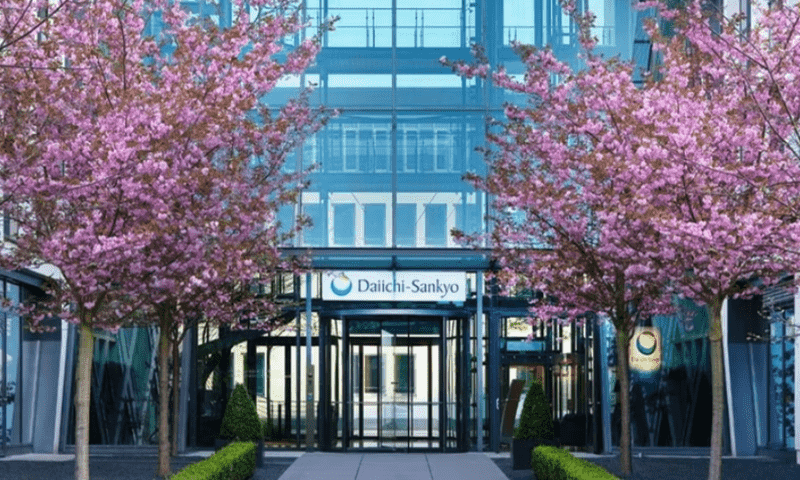Another successful antibody-drug conjugate (ADC) looks set to roll off Daiichi Sankyo’s production line. After teasing early data on the B7-H3-directed candidate one year ago, the Japanese drugmaker has now linked DS-7300 to a 58% response rate in small cell lung cancer (SCLC) and responses in other tumors.
Daiichi has helped establish the ADC space in recent years, striking landmark deals with AstraZeneca that have delivered the HER2-directed treatment Enhertu. DS-7300 is the next cab off the rank. The prospect, one of five ADCs in Daiichi’s clinical-phase pipeline, is designed to deliver the same payload as Enhertu to cells that express B7-H3. The receptor is expressed by a range of cancers and linked to poor outcomes.
Researchers ramped up expectations for DS-7300 at the 2022 European Society for Medical Oncology congress, where Daiichi shared (PDF) updated results from a phase 1/2 clinical trial that is studying the ADC in patients with a range of solid tumors. The SCLC subpopulation is the star attraction.
Investigators administered DS-7300 to 19 patients with SCLC, an aggressive cancer that often recurs after successful first-line treatment. Eleven of the patients responded, although one of the responses was unconfirmed at the time of Daiichi’s statement. The median time to response was 1.2 months, and the median duration of response was 5.5 months.
Daiichi began a phase 2 clinical trial to further elucidate the effects of DS-7300 in SCLC patients over the summer. If the candidate repeats its phase 1/2 success, Daiichi could go on to establish the ADC as an important therapy for relapsed SCLC patients, who currently have limited treatment options.
The SCLC results are part of a broader data set spanning a range of tumor types. Daiichi saw responses in a spectrum of tumors, recording response rates of 33% in prostate cancer and 23% in esophageal cancer. The response rate across all tumor types was 32%.
On the safety front, Daiichi previously stopped dosing DS-7300 at 16.0 mg/kg because of adverse events, notably the death of a patient from treatment-related interstitial lung disease (ILD). Across the 147-subject safety analysis, the drugmaker saw seven cases of treatment-related ILD, but the other six events were grades 1 or 2. A further two cases of ILD/pneumonitis are pending adjudication.
MacroGenics also has a B7-H3-directed ADC, MGC018, in development but is focused on different cancer types than Daiichi, with the biotech targeting metastatic castrate-resistant prostate cancer in a planned phase 2/3 trial after generating data in a range of solid tumors.

